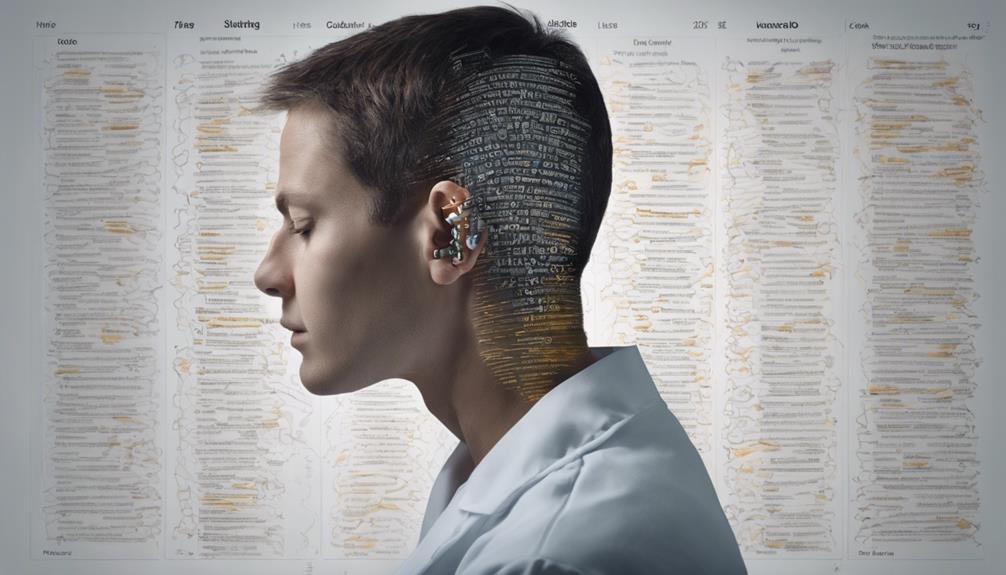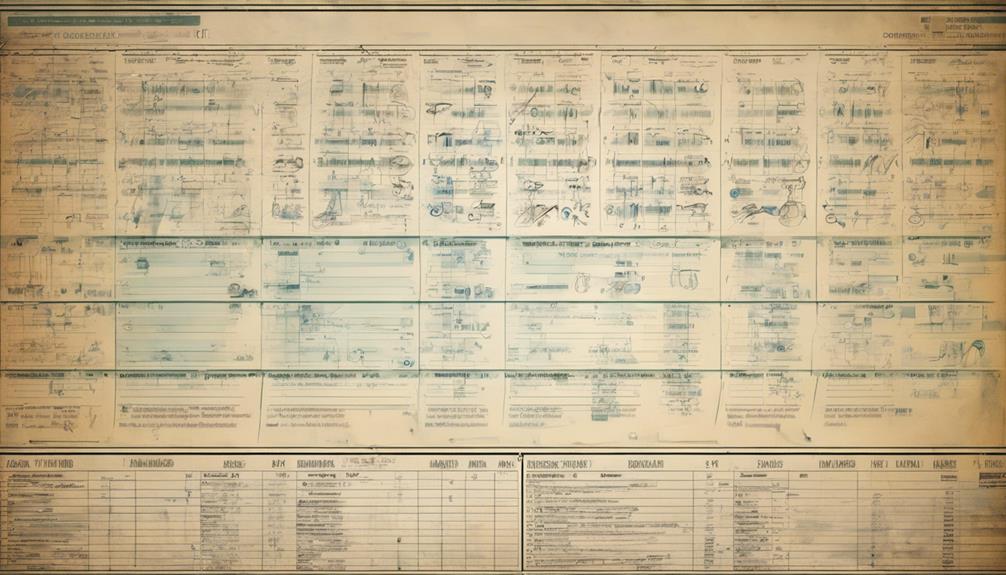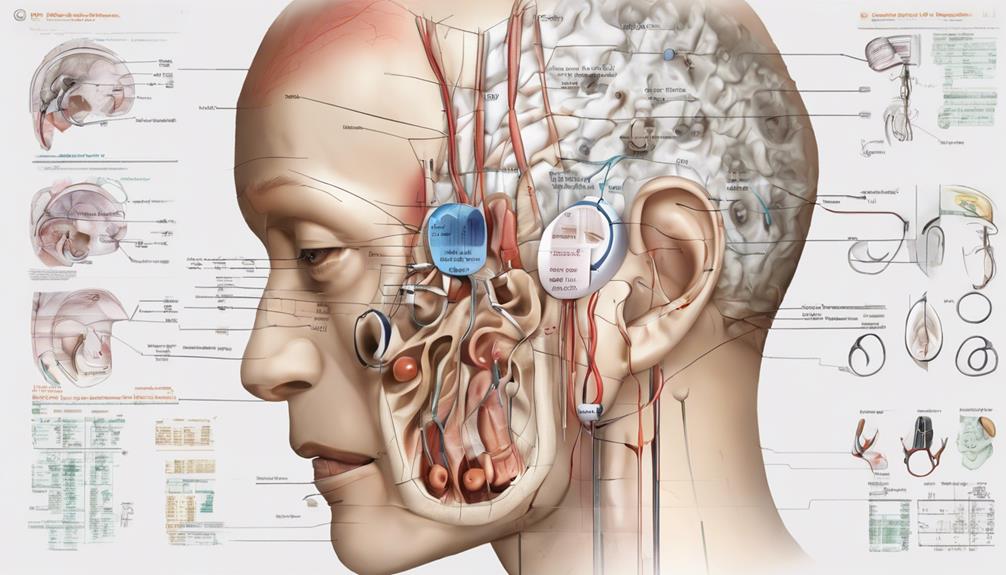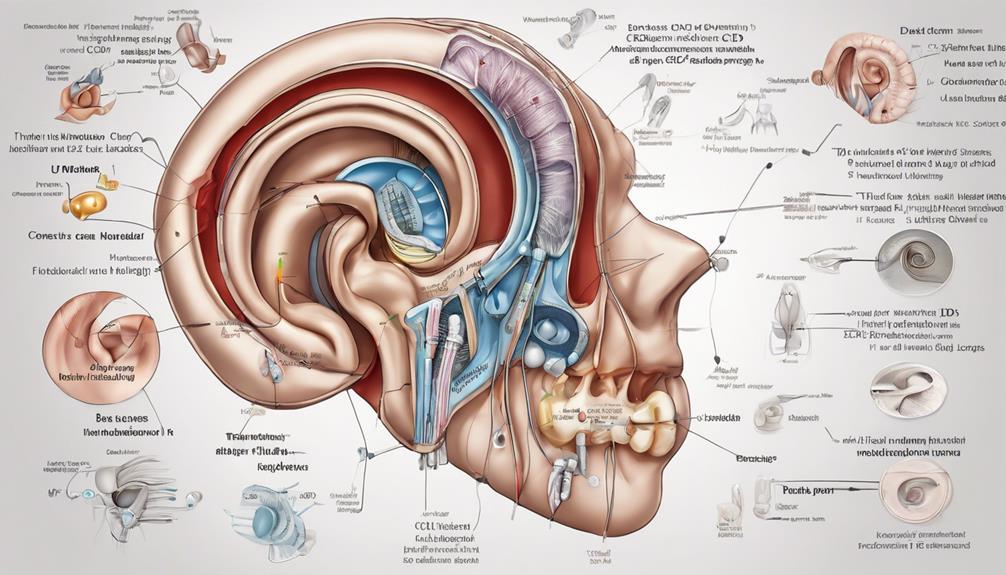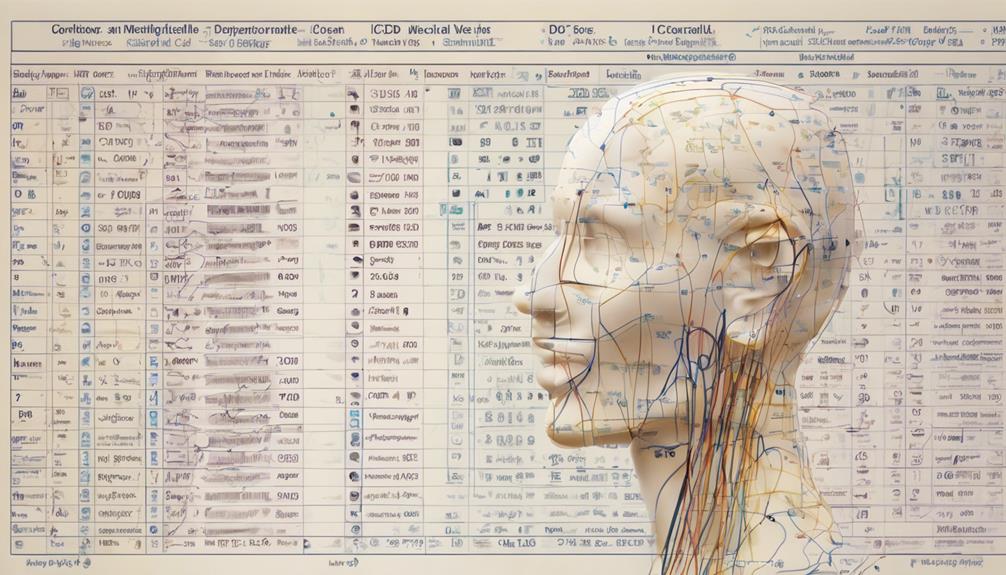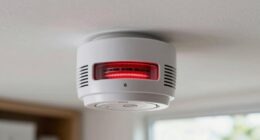When dealing with the complicated array of ICD codes for left ear hearing loss, it can feel as difficult as finding a needle in a haystack. The complexity of medical coding may be intimidating, but fear not, we have clear guidelines to assist you in navigating through this puzzle.
Let's shed light on the path to unraveling the mysteries of ICD coding for left ear hearing loss and equip you with the knowledge needed to ensure accuracy in your coding endeavors.
Key Takeaways
- Utilize code H90.12 for left ear sensorineural hearing loss documentation.
- Accurate coding supports reimbursement and treatment planning for left ear issues.
- Understanding bilateral and unilateral codes aids in tailored treatment plans.
- Access resources like EncoderPro for mastering H90 codes for precise documentation.
Understanding ICD-10-CM Codes for Hearing Loss
Let's delve into the realm of ICD-10-CM codes for hearing loss by exploring the intricate classification system designed to streamline the reporting and management of diagnoses.
When it comes to sensorineural hearing loss in the left ear, specificity is key. The ICD-10-CM code H90.43 specifically denotes this condition, allowing audiologists and speech-language pathologists to accurately document and treat patients with precision.
Understanding specific codes like H90.43 for sensorineural hearing loss in the left ear is crucial for proper billing and treatment planning. These codes ensure that healthcare providers can effectively communicate the exact diagnosis, leading to appropriate reimbursement and targeted interventions for patients experiencing hearing issues in their left ear.
Navigating ICD Code Categories

Navigating the ICD code categories involves understanding the specific codes designated for left-sided hearing loss and utilizing the H90 category for accurate documentation of laterality in diagnoses.
In the ICD-10-CM system, codes for hearing loss are structured to provide detailed information about the condition, including the affected ear. When documenting hearing loss in the left ear, it's crucial to identify the specific code that corresponds to the left side, often denoted by the letter 'L' within the code.
By familiarizing oneself with the code structure and the H90 category, healthcare professionals can efficiently locate the appropriate diagnosis code for left ear hearing loss. Proper coding and documentation play a significant role in accurately identifying the affected ear, which is essential for effective diagnosis and treatment planning.
Understanding how to navigate the ICD-10 coding system ensures that healthcare providers can precisely capture the details of left-sided hearing loss for improved patient care.
Specific Code for Left Ear Hearing Loss

When diagnosing hearing loss in the left ear, healthcare providers should utilize the specific ICD-10 code H90.12 to accurately document unilateral sensorineural impairment on that side.
This code, H90.12, specifically denotes hearing loss in the left ear caused by sensorineural factors. It's crucial for accurate documentation and proper coding and billing procedures.
Coding Tips for Accurate Billing
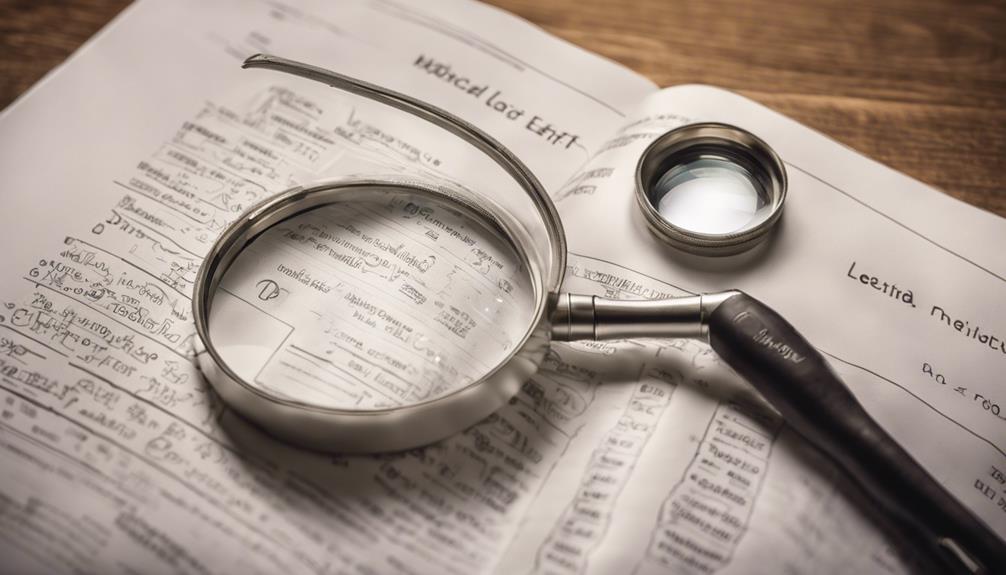
Exploring effective coding strategies ensures accurate billing for healthcare services related to hearing loss in the left ear. When documenting unilateral hearing loss specifically in the left ear, utilizing the ICD-10 code H90.3 is crucial for precise diagnosis and treatment planning.
Accurate coding practices are essential not only for billing purposes but also for maintaining comprehensive medical records. By correctly assigning the appropriate ICD-10 code for left-sided hearing loss, healthcare providers can streamline reimbursement processes and ensure the continuity of care for patients with auditory impairments.
Understanding the distinction between bilateral and unilateral hearing loss codes in the left ear aids in determining the scope of the condition and tailoring treatment plans accordingly. Adhering to coding guidelines and principles guarantees that healthcare facilities can optimize their billing practices while delivering high-quality care to individuals experiencing hearing difficulties in their left ear.
Resources for ICD-10-CM Assistance

Transitioning from coding tips for accurate billing, we can now explore valuable resources available for assistance with ICD-10-CM coding in healthcare settings. When dealing with left-sided hearing loss coding, understanding the ICD-10-CM Classification of Diseases system is crucial. Here are some resources to aid in mastering H90 codes and accurate documentation:
- ICD-10-CM Code Lookup Tools: Online platforms like EncoderPro and SuperCoder offer quick access to the complete set of codes, including H90 codes for left-sided hearing loss.
- Official ICD-10-CM Coding Guidelines: Refer to the official guidelines provided by the Centers for Medicare & Medicaid Services (CMS) for detailed instructions on coding hearing loss and other conditions.
- Medical Coding Books: Invest in up-to-date ICD-10-CM code books that list comprehensive information on H90 codes and their specific usage for left-sided hearing loss.
- Professional Coding Associations: Joining organizations like the American Academy of Professional Coders (AAPC) can provide networking opportunities and access to educational resources for improving hearing loss coding skills.
Frequently Asked Questions
What Is the ICD-10 Code for Hearing Loss Unspecified?
When coding for hearing loss unspecified, it's vital to select the correct ICD-10 code for accurate documentation and treatment.
The code H90.12 specifically denotes hearing loss in the left ear without further specification. By using this code, healthcare providers can ensure proper billing and care planning.
We must always strive for specificity in coding to support patients with hearing impairments effectively.
What Is the ICD-10 Code for Sudden Hearing Loss?
We understand the importance of accurate coding for sudden hearing loss.
The ICD-10 code for this condition is crucial for diagnosis and treatment planning.
Using the correct code, such as H91.21 for sudden hearing loss in the left ear, ensures proper billing and documentation.
What Is the ICD-10 Code for Hearing Loss in the Left Ear?
Certainly!
We know the ICD-10 code for hearing loss in the left ear is crucial for accurate medical records. Proper documentation ensures effective treatment and billing.
Tracking progress and adjusting treatment plans become more manageable with the correct code. Our focus is on providing precise information to assist in healthcare documentation and communication among professionals.
What Is the ICD-10 Code for Left Ear Sound?
When looking for the ICD-10 code for left ear sound, it's important to consider the specific nature of the sound-related issue. Depending on the exact condition, codes like H93.25 for tinnitus or H93.3 for autophony may be relevant.
Properly identifying the type of sound symptom experienced in the left ear allows for accurate coding, diagnosis, and treatment. Always consult with healthcare professionals for precise coding guidance.
Conclusion
In conclusion, understanding the ICD-10 code for hearing loss in the left ear is crucial for accurate documentation and billing.
While coding can seem complex, healthcare providers are available to assist with any questions or concerns.
Remember, proper coding ensures proper treatment planning and helps streamline the healthcare process.
So, don't hesitate to reach out for support in navigating the world of ICD codes for hearing loss.

